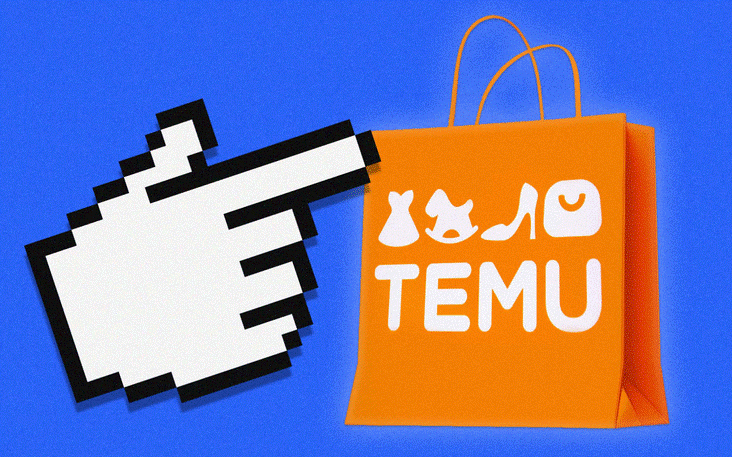BERLIN — Germany’s Federal Cartel Office (Bundeskartellamt) has launched an official antitrust investigation into Temu, one of the world’s fastest-growing online shopping platforms. The regulator suspects the Chinese-owned marketplace of imposing unlawful pricing restrictions on merchants selling to German consumers — a move that could reshape how global low-cost e-commerce platforms operate in Europe.
The inquiry targets Whaleco Technology Limited, the Ireland-based European operator of Temu, which is owned by PDD Holdings, the same parent company behind the Chinese shopping app Pinduoduo. The case marks the first major antitrust action against Temu within the European Union and reflects rising concern over the influence of ultra-low-cost retail platforms on competition, consumer protection, and market fairness.
Allegations of Unlawful Price Controls
The investigation follows a formal complaint from the German Retail Federation (HDE), which accused Temu of dictating how much independent sellers may charge for their products. According to HDE, Temu allegedly restricts merchants from pricing items above 85 percent of what they sell on other platforms, and in some cases reserves the right to set final sales prices itself.
“These practices are completely unacceptable and must not be tolerated,” said Alexander von Preen, President of HDE. “Temu’s policies distort competition and unfairly disadvantage honest retailers who operate within the law.”
The Bundeskartellamt, led by President Andreas Mundt, confirmed that it is examining “whether Temu is making unlawful pricing demands that could restrict fair competition and indirectly influence prices across other sales channels.” Mundt added: “We are looking closely at whether the company’s platform model gives it undue control over independent sellers’ pricing autonomy.”
If confirmed, such conduct could constitute a violation of Germany’s competition law, which prohibits price-fixing or resale price maintenance practices that distort market freedom.
Temu: ‘We Comply with Local Laws’
Temu has denied wrongdoing. In a written statement, the company said it “complies with all applicable laws and regulations in the markets where it operates.” The firm added that it is cooperating fully with German authorities and is confident that any concerns can be “clarified through open dialogue.”
Temu’s representatives also stressed that the platform’s business model “empowers small and medium-sized sellers to reach European customers” and that “any pricing tools or guidance provided to merchants are designed to enhance competitiveness and transparency.”
However, the investigation comes at a sensitive time for Temu, which has faced mounting scrutiny from European and U.S. regulators alike over issues ranging from product safety and supply chain transparency to data protection and fair competition.
Part of a Broader European Crackdown
Temu’s rise has been meteoric: since entering the European market in 2023, the app has rapidly expanded its user base, claiming over 19 million active users in Germany alone in the first half of 2025. Its mix of rock-bottom prices, social-media-driven marketing, and gamified discounts has made it a global phenomenon — but also a target of regulatory concern.
In July 2025, the European Commission officially designated Temu as a “Very Large Online Platform” (VLOP)under the Digital Services Act (DSA). This classification subjects the company to strict obligations related to consumer protection, algorithmic transparency, and risk management. The Commission is already investigating whether Temu’s operations comply with those standards, particularly regarding misleading listings, counterfeit products, and opaque seller policies.
If violations are found, the platform could face fines of up to six percent of its global annual turnover, a potentially substantial penalty given Temu’s multibillion-dollar revenues.
Implications for Global E-Commerce
The German probe could have ripple effects beyond Europe. Temu’s supply chain depends heavily on Chinese manufacturers and Southeast Asian logistics networks, meaning any regulatory restrictions in Germany or the EU could affect global pricing and distribution models.
For merchants, a finding against Temu could lead to greater pricing freedom and potentially fairer conditions across platforms such as Amazon, AliExpress, and Shopee. However, industry analysts caution that it might also result in higher prices for consumers, at least in the short term, as deep discount strategies become harder to sustain.
Economists from the German Institute for Economic Research (DIW Berlin) suggest that the case may set an important precedent: “Germany is signaling that low-cost digital platforms must adhere to the same competition principles as traditional retailers,” said one researcher. “This could redefine how global marketplaces interact with sellers in Europe.”
A Test Case for Digital Oversight
The Bundeskartellamt has not provided a timeline for completion of its investigation, which could take several months or longer. If the agency finds sufficient evidence of misconduct, Temu may face fines, mandatory contract revisions, or binding compliance orders.
Regulators insist that the goal is not to target Chinese companies specifically, but to ensure a level playing field. “Fair competition benefits everyone — consumers, sellers, and the economy alike,” President Mundt stated. “We want innovation, not manipulation.”
Meanwhile, consumer groups in Germany and other EU countries are closely watching the case, viewing it as a test of how effectively European authorities can enforce digital fairness in an increasingly globalized online marketplace.
A Turning Point for the Company’s International Ambitions
For now, Temu continues to operate freely in Germany and across the European Union. Yet the antitrust case marks a turning point for the company’s international ambitions. The outcome could influence not only its European strategy but also how similar platforms structure their pricing and merchant agreements worldwide.
As digital marketplaces blur national boundaries, the German regulator’s move underscores a growing global consensus: cheap prices alone do not justify unfair competition. (za)

